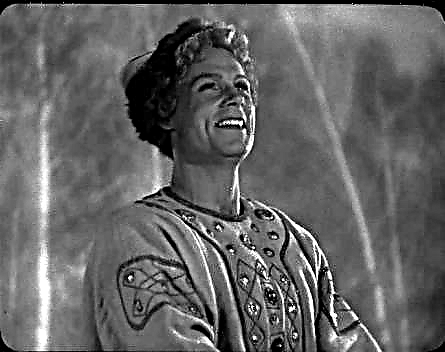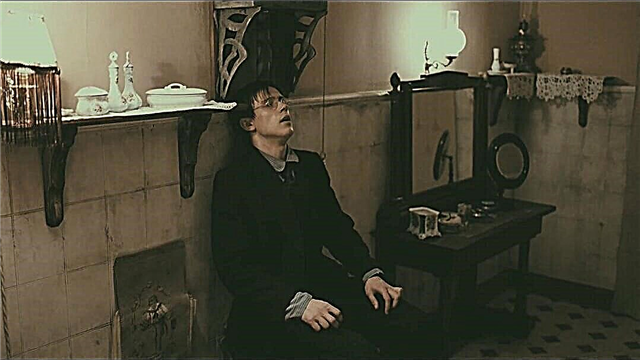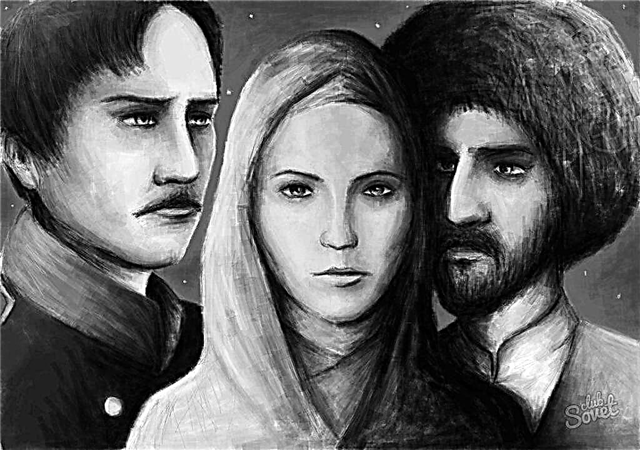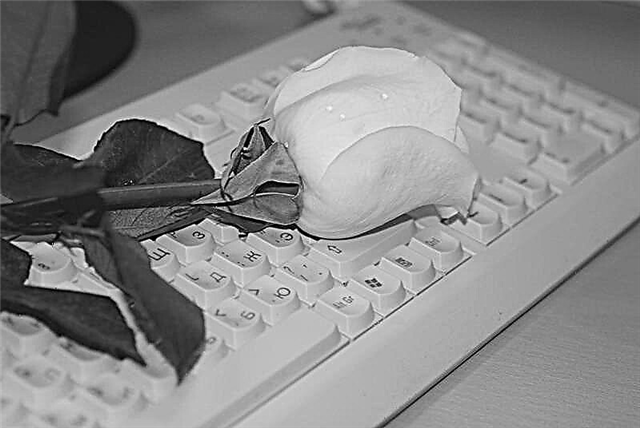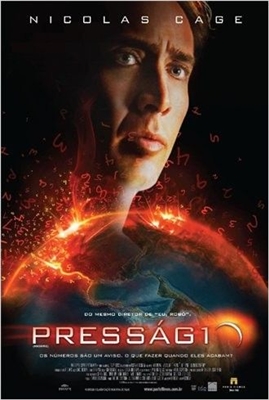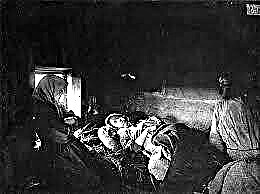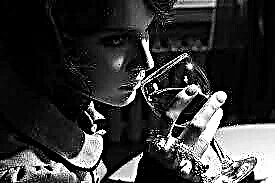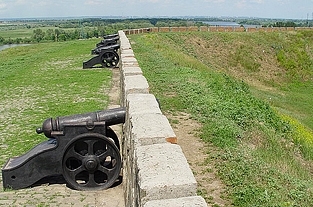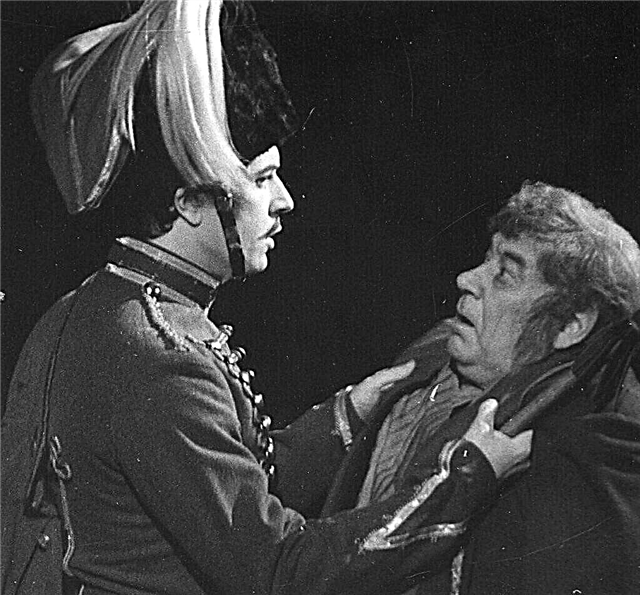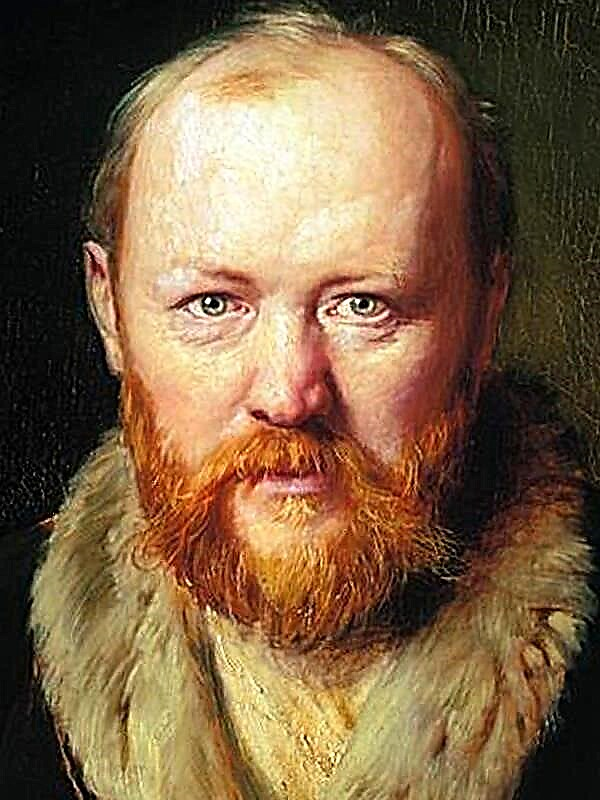The story of Vavilen Tatarsky, a prominent representative of the “P” generation, who conquered the Stalinist skyscraper of the Tower of Babel, became a member of the worldwide conspiracy and earthly husband of the goddess Ishtar.
Once upon a time there was a generation in Russia that chose Pepsi. They dreamed that someday a forbidden world from that side of the ocean would come into their life. After 10 years, this world has entered. His calling card was an advertising clip in which the monkey drank Pepsi-Cola and drove off in a chic jeep in an embrace with girls in a bikini. “It was this clip that made it clear to a large number of monkeys vegetating in Russia that it was time to get in jeeps and enter the daughters of men.”
Vavilen Tatar automatically fell into the "P" generation. The name Vavilen, which was awarded to his sixties father, was made up of the words "Vasily Aksyonov" and "Vladimir Ilyich Lenin." Tatar was ashamed of his name and lied to everyone that his father was fond of oriental mysticism and meant ancient Babylon. At 18, Tatarsky lost his passport and changed his name to Vladimir.
One summer, Tatarsky read a volume of Pasternak's poems, as a result of which he dropped out of the technical institute in which he studied and entered the Literary Department of the Department of Translation from the Languages of the USSR. Then he began to write poetry for eternity. After some time, the USSR collapsed, and with it the eternity for which it was necessary to write disappeared. Tatar was not in demand by the era. In his little book, he wrote: "When the subject of eternity disappears, all its objects disappear - and the only subject of eternity is the one who at least occasionally remembers about it."
Tatarsky got a job as a seller in a commercial stall, whose "roof" was Huseyn, who lived in a half-empty wagon nearby. Here Tatarsky acquired two new qualities: endless cynicism and the ability to determine the solvency of the buyer according to his hands. Once Sergey Morkovin, his classmate at the Literary Institute, approached the Tatar stall. Morkovin was engaged in advertising.
The next day, he took Tatarsky to a place called the Draft Podium. The main thing was the unshaven guy Sergei. For his first job, an advertisement for the Lefortovo Confectionery Plant, Tatarsky received 2 thousand dollars. So Tatarsky became a copywriter. He did not explain to Huseyn, but simply put the keys to the stall on the porch of his trailer. Quite quickly, Tatar began to work immediately for several studios.
After some time, Tatar tried to rise a notch and began to develop advertising concepts. In this he was helped by the book “Positioning: the battle for your mind”, which Tatarsky considered his little Bible and often reread in the future. From the point of view of Dmitry Pugin, the new employer of Tatarsky, the meaning of his work was to adapt Western advertising concepts to the mentality of the Russian consumer. Pugin, a man with a black mustache and sparkling black eyes, used to work as a taxi driver in New York and it was from there that he brought the idea of the Soviet mentality.
Pugin instructed Tatarsky to develop an advertising concept for the Parliament cigarettes. After tormenting himself for several hours, Tatarsky remembered his course on history, which was called "A Brief Outline of the History of Parliamentarism in Russia." Parsing the deposits on the mezzanine, Tatar found a folder-folder with the inscription "Tikhamat" on the spine. This was an appendix to the dissertation on the history of the ancient world. One of the articles was entitled “Babylon: Three Chaldean Riddles”, and in the first word, the smeared “e” clearly appeared through the letter “o”. Excitedly, Tatarsky set to work on the article.
It spoke of the Chaldean goddess Ishtar, whose ritual objects were a mirror, a mask and a fly agaric. Any resident of Babylon could become the husband of the goddess. To do this, he had to drink a potion from fly agaric and climb the ziggurat (tower) Ishtar, solving three riddles along the way. In the upper room of the ziggurat was the golden idol of the goddess, with whom it was necessary to have sexual contact. “The three riddles of Ishtar were three symbolic objects that were presented to the Babylonian, who wished to become Chaldean. He had to clarify the meaning of these subjects. " The priests of Ishtar sold answers to riddles on sealed clay tablets, and it was called the Great Lottery.
The next day, Tatar accidentally met his classmate Andrei Gireyev. He was dressed in a blue robe and an embroidered Nepalese vest and "seemed like the last shard of a dead universe." He invited Tatarsky to visit the village of Rastorguevo. Upon arrival, Gireyev treated Tatar with tea from dried fly agaric. After half an hour, the tea acted, echoing in the Tatar body with a trembling joy. After chewing another pair of slices of dried fly agaric, the friends went for a walk. On the way through the forest Tatarsky ate several more brown mushrooms. Soon, "his thoughts gained such freedom and power that he could no longer control them."
Gireev was frightened of the state of Tatar and fled. Tatar chased him and found himself near a frozen construction site. The unfinished building was like a stepped cylinder with a turret at the top, around which a spiral road curled around the supports. Tatar began to climb the ziggurat. On the way, he found three items: a cigarette pack “Parliament”, a three-peso Cuban coin with the image of Che Guevara, and an old plastic pencil sharpener in the form of a TV. The turret turned out to be a technical room. On the wall hung a poster with a naked, golden tan, woman running along the beach.
After this adventure, advertising concepts began to be obtained from Tatar much easier. “The further he went deeper into the jungle of advertising, the more questions he had that he couldn’t find an answer to.” In the book of Rosser Reeves, Tatarsky read out two terms: “implementation” and “involvement”, which turned out to be very useful for him. Tatar thought a lot about where people like him would find out exactly what the people should be involved in and who came up with the main trend. Over time, he realized that he was creating a panorama of a non-existent world for people on a wall. The more money a person has, the more beautiful the view in the panorama. “Then maybe the wall is painted? But by whom and on what? ”
Cocaine did not give Tatar pleasure for a long time. Once at a bar, a man who looked like a former hippie, who called himself Gregory, sold a postage stamp saturated with LSD to Tatar.
The next morning, a certain Vladimir Khanin called Tatarsky and said that Dmitry Pugin was killed. Arriving at the office of Khanin, Tatarsky saw a tent above his desk with three palm trees on a tropical island. These palm trees were a copy of a hologram from a pack of "Parliament", which Tatarsky found on a ziggurat. From this day, Tatarsky began working at the Khanin’s Secret Advisor agency. Tatarsky was alarmed by the fact that Khanin knew his real name - Babylon. "Mystical power overdid it somewhat with the number of instructions presented to his frightened soul at the same time."
Thinking about this, Tatarsky felt like "depression crawled into my soul." You could get rid of it by buying something. Looking around, Tatar saw a store under the sign "Ishtar." “He already knew for sure that his entire current route was not accidental.” On the corner of Tatarsky Street I saw a poster with the inscription "The Way to Myself" and a yellow arrow calling around the corner. Tatar hardly found a store and entered. Above the counter hung a T-shirt with a portrait of Che Guevara. Tatar bought a T-shirt and tablet for spiritualistic sessions.
At home, Tatarsky filled the tablet with paper, laid his hands on it and aroused the spirit of Che Guevara. He wanted to learn something new from advertising about advertising. The tablet wrote all night and produced a text under the heading “Identism as the Highest Stage of Dualism”. The text said that the dark age had come, the human environment is no longer divided into subjects and objects, as it was before. An object of a different nature appeared - the TV turned on. While watching the programs “a virtual subject of this mental process arises, which for the time of the TV show exists instead of a person, entering his consciousness, like a hand in a rubber glove”. Che Guevara compared this to an obsession with the spirit, with the difference that the spirit does not exist. “Object number two, that is, the TV is turned on, corresponds to subject number two, that is, a virtual viewer,” and subject number two is absolutely unrealistic. When zapping (fast switching from channel to channel) “the TV turns into a remote control for the viewer”, and is “the main way the advertising and information field affects the mind”. Thus, a subject of the second kind (Homo Zapiens, or HZ) himself becomes a television program.
From the point of view of economics, each HZ is a cell of a huge organism called oranus (in Russian - “rotozhopa”). The task of each cell is to "let as much money as possible inside the membrane and let out as little as possible". Television is the oranus nervous system. To control cells, the oranus uses three types of effects (wow pulses): oral, anal and displacing. An oral wow impulse causes a cell to absorb money in order to obliterate the difference between its real image and the ideal created by the ad. Anal wow impulse makes you allocate money to experience pleasure when these two images coincide. “The displacing impulse suppresses and displaces from the human mind all mental processes that may interfere with complete identification with the oranus cell.”
Homo Zapiens fused to the TV show is not able to withstand wow impulses, as each ad unit is “a complex and well-thought-out combination of anal, oral and suppressing wow impulses”. When HZ turns off the TV and becomes an ordinary person, his brain begins to generate wow pulses by itself. This leads to the fact that a person is able to absorb only that information that is saturated with wow content. In place of the person identity appears.
The whole culture of the dark century descends to the oral-anal theme, "the main feature of this art can be shortly defined as rothojopie." At the end of this extensive work, Che Guevara predicted the near end of the world, which would be a simple television show.
In addition to Tatarsky, Khanin’s firm employed two more crietors, Seryozha, “a short thin blond with golden glasses,” and Malyuta, “a healthy goon in a worn jeans suit.” These two were the exact opposite of each other. On the table, Khanina Tatarsky saw the secret manual "Virtual Business and Communications", which Khanin hastily hid in a drawer. Over time, Tatar and without benefits began to understand the virtual business. “Advertising, like other types of human activity in the cold Russian expanses, was tightly fastened to the circulation of black cash. <...> Journalists eagerly deceived their magazines and newspapers, <...> copywriters gladly deceived their agencies, "concluding an agreement with a client behind the backs of their superiors. In this field Tatarsky was waiting for success.
A few days later Tatarsky remembered the brand with LSD, and decided to give it a try. It was boring to wait for the brand to work, and Tatarsky decided to read the Tikhamat folder to the end. On one of the pages Tatarsky saw a photograph of an ancient bas-relief, the central figure of which was Enkidu, the god-fisherman, patron of the Great Lottery. In both hands Enkidu held threads on which people were strung.The thread entered the man’s mouth and exited the anus. Each thread ended in a wheel, in the center of which was a triangle with a painted eye. According to legend, people had to climb the thread, "first swallowing it, and then grabbing it alternately with their mouth and anus."
Suddenly Tatar saw a flicker in the corner of the room. "His attention shifted to this point and stayed there for a moment, but this was enough to imprint in the mind an event that gradually began to emerge and become clearer." He stood on the street of an unfamiliar city, above which a tower rose, resembling a stepped pyramid crowned with dazzling white fire. Around stood people and inseparably looked at this fire. Tatar also raised his eyes, and fire began to attract him. He knew that many had already gone there and were pulling him along, and those who were following him were pushing behind.
Tatar hardly closed his eyes, and opening them, he saw that this was not a tower, but a huge human figure, on whose head a conical helmet shone. The figure was looking at him, and before Tatarsky could ask, she already gave an answer. When Tatarsky came to, “an incomprehensible word was pulsing in his ears - either“ sirrukh ”, or“ sirruf “. This was the answer that the figure gave. ” Immediately after this, Tatar heard a voice called sirruf. Tatarsky either saw or imagined a creature resembling a dog with powerful clawed legs and a long neck, crowned by a head with an elongated sly muzzle and a scallop on the top of its head. Wings were pressed to the sides of the sirruf. Since sirruf was covered with rainbow scales, Tatar called him a dragon.
Siruf explained to Tatarsky that by taking LSD or fly agaric, a person goes beyond his world. The stamp that Tatarsky ate was a pass for five people in a place where it is not allowed to stagger around. Sirruf turned out to be the guardian of the Tower of Babel, and what Tatarsky saw, the Sirruf called “tofet” - a place of sacrificial burning, where the flame of consumption burns, in which identity burns. Tatar saw fire only because he ate the pass. Most people, instead of fire, see a television screen in front of them.
Miraculously surviving, Tatarsky woke up with a terrible hangover and went for a beer. At the stall Tatarsky met Huseyn. Tatarsky was afraid that he would demand “compensation” from him and unquestioningly followed Huseyn into his trailer. There Tatarsky saw a bound man in a crumpled club jacket with golden buttons, from whom Huseyn extorted something. Huseyn really demanded "compensation" from the Tatar, but at that time Khanin called the pager and soon came to the rescue in the company of a hefty kid. The child’s name was Vovchik Malaya, he was the “roof” of Hanin. Before leaving, Tatarsky returned to Huseyn’s trailer for his beer. There, a tied businessman handed him his business card. On the business card it read: “Tampoko. Soft drinks and juices. Stock Development Manager Mikhail Nepoyman. "
Vovchik Malaya ordered the Tatar concept of the Russian national idea. In creating the concept of Tatar, a complete failure awaited, even the spirit of Che Guevara did not help. The next morning, Tatarsky learned that Vovchik Malyi was killed during a showdown with the Chechens. Without a “roof” Hanin got into trouble, and he had to curtail his business.
In the office of Khanin Tatarsky again met with Morkovin. He offered Tatarsky a new job. Hanin's office was located in a Stalinist house, similar to a step Mexican pyramid and a squat skyscraper. At the gate hung a metal sign with the inscription: "Interbank Committee on Information Technology." An old bronze mirror and a Venetian carnival mask hung in the waiting room of the new boss. The boss himself, still a young stocky fat man, reclined on a sumptuous Persian rug in the middle of his study. The entire carpet was strewn with cocaine, the boss inhaled it through a plastic tube.His face was familiar to Tatarsky; he saw him in hundreds of commercials for supporting roles. The boss was called Leonid Azadovsky, although in fact his name was Legion.
The advertising department in this institution did not develop a concept, but coordinated the work of large advertising agencies. Tatarsky was hired on probation in the department of internal reviews on the third floor. A few months later Tatarsky went up.
Morkovin brought Tatarsky up to date. It turned out that the politicians who are shown on television do not actually exist. They are created using a heavy-duty American computer. The higher the post of the virtual politician, the better the 3D graphics. Yeltsin turned out like a living among them. The same applied to the oligarchs. Morkovin said that there is a service called "Narodnaya Volya", "they have such a job - to go and tell that they just saw our leaders." Morkovin showed Tatarsky the shooting pavilion, where they shot on camera a man surrounded by sensors, who was called the "skeleton". Then a digital model of a politician was imposed on his image. The same technology has been adhered to throughout the world. The Americans started first and now everyone dictated their conditions.
It turned out that everything in Russia was decided by politicians and oligarchs created by 3D specialists. Tatarsky asked what all this rests on, who determines the course of world politics and economics, but Morkovin forbade him to even think about it. Tatarsky was appointed senior criterion in the department of incriminating evidence.
Gradually, Tatarsky's oral-anal impulse began to fail. The world for him turned into a digital image, there was nothing to strive for. Soon Tatar was given a co-author, who was Malyuta.
After some time, Azadovsky invited Tatarsky to a picnic. Azadovsky was pleased to go into the dirtiest pubs and listen to what ordinary people say. This time they visited the pub near the Rastorguevo station. Some bandits ran into them there, and Tatarsky had to escape. Left behind, he decided to visit Gireyev. Entering Gireyev’s house, Tatarsky saw traces of degrading poverty around him and immediately lost interest in Gireyev - this is how the crowding wow impulse acted on Tatarsky.
Having got hold of Gireev’s dried fly agaric, Tatarsky decided to take a walk in the nearest forest. When the fly agarics acted, Tatarsky again climbed onto the concrete tower of a frozen construction site. In the upper room, he saw an old television program with the underlined name of the program: “The Golden Room”. Then he fell asleep and saw a golden goddess who ran towards him along the beach.
The next day, Tatarsky went to Ostankino to take part in a strange ritual. He was stripped naked and blindfolded. When the blindfold was removed, Tatarsky discovered that he was standing in the doorway of a large room lined with yellow stone, full of people. The audience did not pay attention to him. The room should have housed a collection of Azadovsky’s paintings, but instead of paintings, notarial certificates hung on the walls stating that this painting was indeed acquired in a private collection.
Then Azadovsius opened the door in the mirror wall and led Tatarsky along a long dark corridor of rough stones. The corridor led them to the cloakroom clad in clapboard. Azadovsky also undressed. Then everyone put on a strange skirt “either of feathers or of whipped wool” and took on a bronze mirror and a golden mask. The next floor-to-ceiling room was lined with gold leaf and brightly lit by spotlights. "Directly opposite the door was an altar - a cubic golden pedestal, on which lay a massive crystal eye with an enamel cornea and a mirror pupil." There was a golden cup in front of the altar, and two stone sirrufs on the sides. Over the eye, on a slab of black basalt, intricate figures were knocked out.
Azadovsky told the Tatar story of an ancient goddess who wanted to become immortal. "And then she was divided into her death and that which did not want to die." A war broke out between them, the last battle of which took place right above this place. When the dog began to win, other gods forced them to make peace. The goddess was deprived of the body, "she became what all people strive for," "and her death became a lame dog with five legs, which should always sleep in one faraway country in the north." The society into which Tatar entered, guarded the dream of a death dog and served the ancient goddess Ishtar. The head of the society was Fasuk Karlovich Seyful-Farseykin, a well-known TV presenter, whom Tatar often met, but was not familiar with.
Tatarsky's forehead was anointed with dog blood and forced him to look into the eye through which the goddess recognizes her earthly husband. Now on the post of husband Ishtar was Azadovsky. In the pupil of his eyes Tatar saw a golden glow. Suddenly, some kind of fuss began behind him - this was choking Azadovsky. Now Tatar became the earthly husband of the goddess. The body of Azadovsky was put in a large green ball and rolled out of the room. After that, a digital copy was taken from Tatarsky. Participation in all videos and programs has become the main sacred function of the Tatar. The non-existent body of the goddess is the totality of all television images. To mystically merge with his wife, Tatar must also be transformed. Essentially, Ishtar’s husband will be the 3D model of Tatar. During the scan Tatarsky came up with a terrible thought: what if the entire Pepsi generation is the same dog with five legs.
As a legacy from Azadovsky, Tatarsky got a small Philips phone with a single button in the form of a golden eye. Since then, the face of Tatar flashed in all advertising clips and television reports. “There were rumors that a video was shot, where thirty Tatars follow the road one by one, but it’s not possible to establish it like that or not.”

